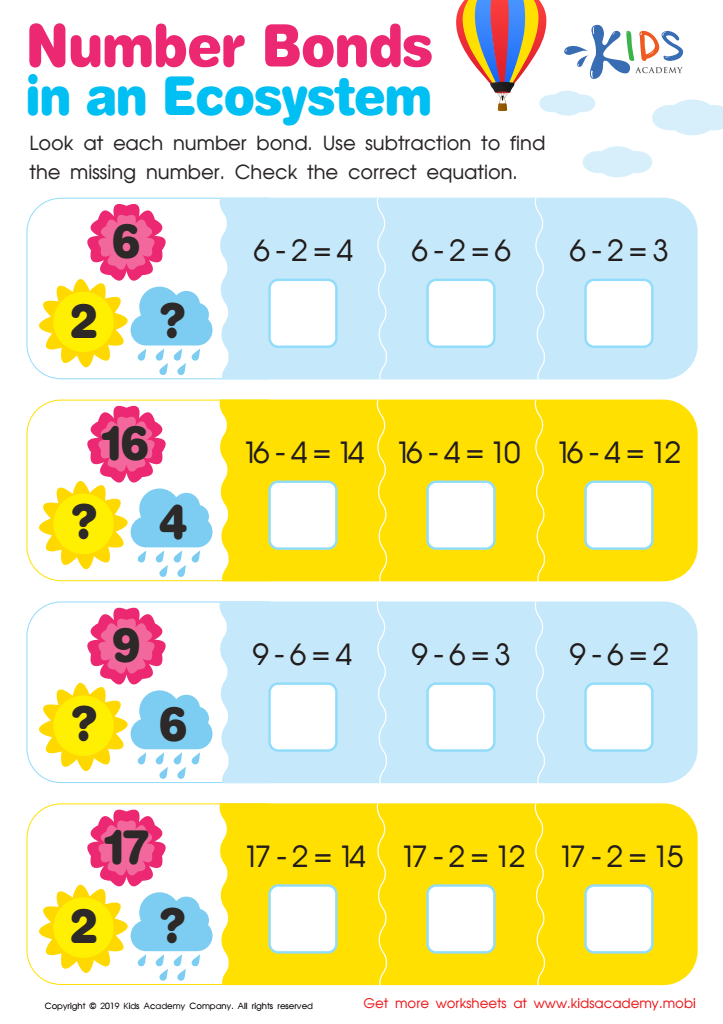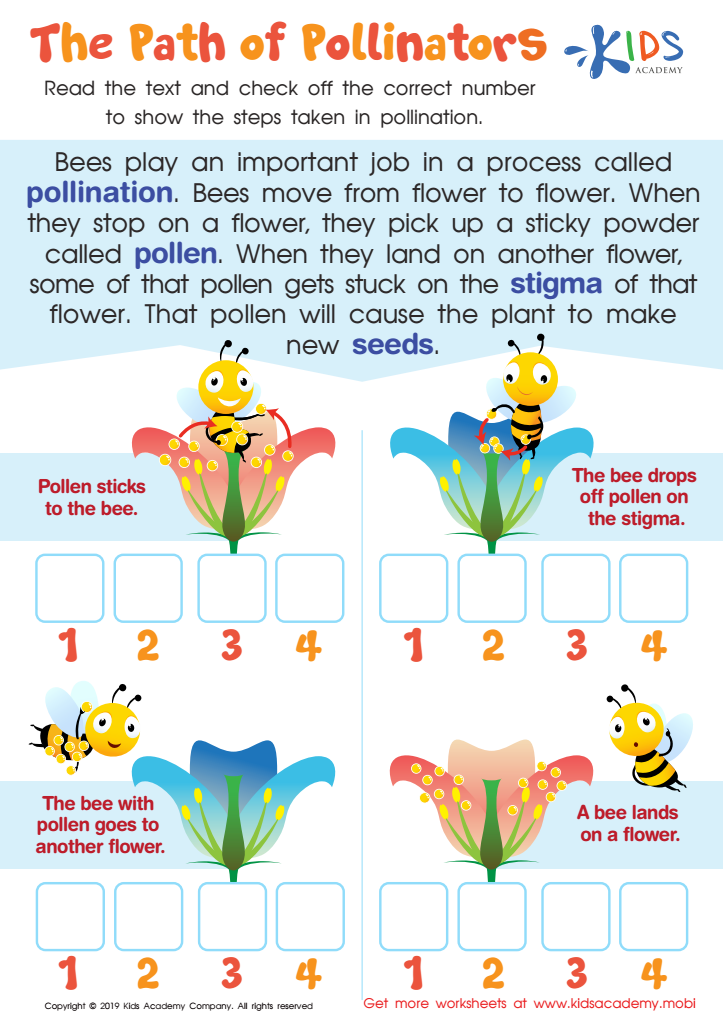Learning about ecosystems Worksheets for Ages 5-7
3 filtered results
-
From - To
Discover an exciting way to engage your young learners aged 5-7 with our "Learning about Ecosystems" worksheets! These fun and educational printables from Kids Academy are perfect for introducing children to the wonders of nature. Through hands-on activities and colorful illustrations, kids will explore various ecosystems, their inhabitants, and how they interact. Designed to foster curiosity and a love for the environment, these worksheets also help develop essential skills such as critical thinking, observation, and vocabulary building. Make learning about ecosystems an adventure with Kids Academy’s expertly crafted resources. Start exploring today!


Pollinator Positions Worksheet


Number Bonds in an Ecosystem Worksheet


The Path of Pollinators Worksheet
Teaching young children about ecosystems offers tremendous benefits that parents and teachers should cherish. At ages 5-7, children's minds are like sponges, ready to absorb new information, and understanding ecosystems cultivates a sense of wonder and respect for nature. Integrating ecosystems into early education nurtures curiosity, encourages observation skills, and develops critical thinking.
Learning about ecosystems helps children appreciate the interconnectedness of life. By understanding how plants, animals, water, air, and soil work together, children grasp the delicate balance that sustains our world. This early foundation fosters environmental stewardship, making kids more likely to grow into adults who care about conservation and sustainable practices.
Moreover, exploring ecosystems can enhance other learning areas. It naturally incorporates elements of science, geography, and even mathematics through activities like counting species or measuring plant growth. Stories and discussions about different species encourage literacy and language skills as children describe what they see and express their thoughts.
Hands-on activities, whether a walk in the park or a classroom experiment, also make learning enjoyable and memorable. This experiential learning boosts children’s engagement and motivates a deeper love for learning. Therefore, giving children this early understanding not only enriches their knowledge but also shapes their values, making it crucial for parents and teachers to prioritize ecosystem education.
 Assign to My Students
Assign to My Students















